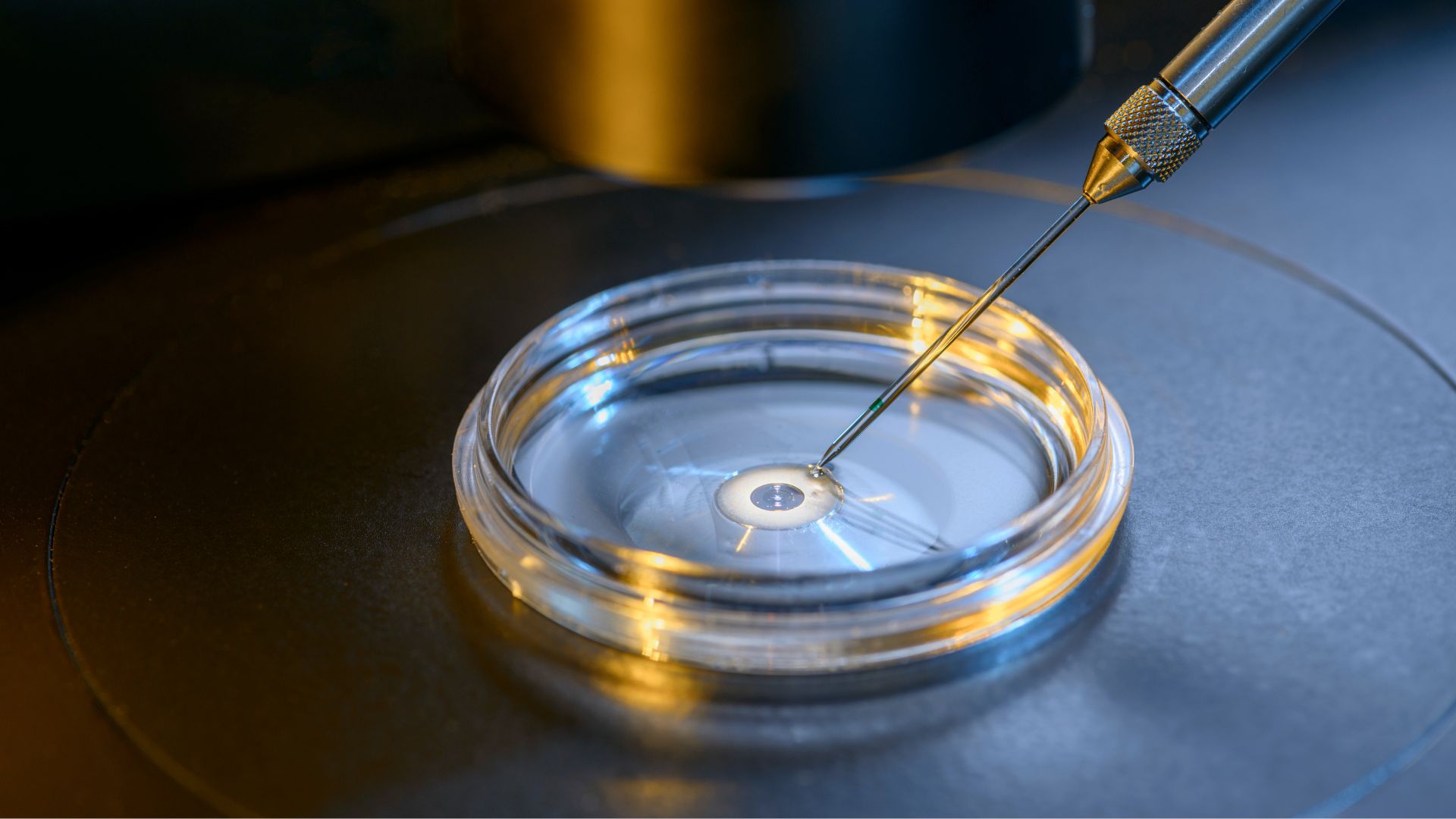
In vitro fertilization (IVF) is an incredible medical journey that offers hope to those struggling with infertility. It’s a complex process with tremendous possibilities – and understanding what to expect can be empowering.
Here, we will break down the stages, highlight what to expect, and provide valuable insights. It’s important to understand the Essence of IVF, a procedure that allows egg fertilization to occur outside the body.
For those considering IVF or about to start the journey, this article aimed at demystifying the IVF Procedure and offering a comprehensive guide, is for you!
Consultation Stage
Starting any new medical procedure can be daunting, but the first step you take into an IVF clinic is also the first step towards potential parenthood, a pivotal moment filled with hope and anticipation.
At your initial consultation, your fertility specialist will dedicate time to review your medical history, discuss any previous investigations, answer any of your questions regarding the IVF process, and agree upon a plan that feels right for you.
Several tests might be conducted to diagnose the potential causes of infertility such as blood tests and ultrasound for women, and semen analysis for men.
Many prospective parents ask a lot of questions during their consultation and we’re here to help. Here are answers to some of the Most Frequent Questions Asked About IVF.
Ovarian Stimulation Stage
Once you’ve decided to proceed with IVF, you’ll begin the ovarian stimulation stage, a crucial part of the IVF process that increases the number of mature eggs produced by the ovaries.
This stage involves daily hormone injections for around 8-14 days which help to encourage your ovaries to produce multiple mature eggs ready for fertilization.
The use of medication during this period plays a significant role as it ensures the ovaries are sufficiently stimulated to increase the success of the procedure.
Many of my patients have inquired about the Importance and Timing of IVF, and I always stress that these are necessary steps towards making the dream of parenity come true.
Throughout ovarian stimulation, one must monitor and manage its side effects. This might include headache, mood swings, breast tenderness and bloating.
Despite these potential hurdles, it’s important to stay positive and remember the end goal – a successful IVF journey.
Egg Retrieval Stage
After your ovaries have been adequately stimulated, the next step in your IVF journey is the egg retrieval, a pivotal moment. This stage is typically scheduled about 36 hours after your final ‘trigger shot’, which induces the final maturation phase of the eggs.
The Egg Retrieval Process involves an outpatient procedure often performed under sedation for comfort. Your reproductive specialist will gently retrieve eggs from the follicles using a fine needle guided by ultrasound.
The experience is usually quick and causes minimal discomfort, with many women able to resume regular activity within a couple of days post-procedure.
Post-retrieval, feelings of excitement may mix with nervousness as these eggs represent potential future embryos, and ultimately, the children you’ve been longing for.
Fertilization and Embryo Development Stage
Next, we enter a phase that feels nothing short of miraculous: the fertilization of eggs and their development into embryos. The embryology lab becomes the serene nursery where your future embryos begin their growth.
In the lab, provided sperm samples are processed through a technique known as Intracytoplasmic Sperm Injection (ICSI) or conventional IVF method, depending on the case specifics.
In the case of severe male infertility, or if there’s a history of failed fertilization, ICSI is a valuable tool that involves injecting a single sperm directly into an egg to facilitate fertilization.
These early days of an embryo’s development are crucial, with embryologists keeping a vigilant eye on their growth. For some, this stage may include Preimplantation Genetic Screening (PGS) to identify any potential genetic abnormalities.
I welcome you to stay tuned for the following segments, where we’ll delve into the next phases of the IVF process.
Meanwhile, if there are any thoughts or concerns you wish to express, do not hesitate to reach out. Our aim is not only to guide you through the IVF process but also to be present for you every step of the way.
Embryo Transfer Stage
Arguably the most anticipated stage is the embryo transfer. This is when the potential new life is carefully transferred into the uterus.
It’s a day of hope and the culmination of much effort. The embryo transfer itself is a relatively simple and painless procedure that usually takes place 3-5 days following the egg retrieval.
Before the transfer, you’ll discuss with your doctor how many embryos to transfer. This decision is critical and guided by factors such as maternal age, embryo quality and one’s personal or family history. It’s also essential to understand the Risks associated with Multiple Pregnancies from an IVF cycle.
During the procedure, a soft catheter is used to gently place the chosen embryo(s) into the uterus, a process that is often guided by ultrasound for precision. Women typically may return home soon after the procedure and are advised to rest for the remainder of the day.
The Two-Week Wait Stage
After the excitement of the transfer, the subsequent two-week wait can be the toughest part emotionally.
This period is packed with anticipation, as it will determine the success of the whole IVF procedure. It’s normal during this time to be on high alert for any possible signs of early pregnancy.
I always encourage my patients to take care of themselves and employ coping strategies that work for them, whether through mindfulness, gentle exercise, or engaging in hobbies.
If you’re struggling, remember you’re not alone – support is available, and we understand this challenge intimately. Coping with the IVF Process can be daunting, but it’s important to focus on self-care and support.
Approximately 14 days post-transfer, you’ll come back for a pregnancy test. Regardless of the outcome, we are here to support you and discuss the next steps, whether it be celebrating a positive result or considering future options.
Success Rates and Factors Affecting IVF Outcome
As patients embark on the journey of IVF, one of the most pressing questions they face is related to the success rates of the procedure. It’s crucial to realize that IVF does not offer a definitive guarantee, and Success Rates for IVF can vary greatly depending on several factors:
- Age: Women’s age significantly affects IVF success rates, with younger women typically experiencing more favorable outcomes.
- Underlying Fertility Issues: The cause of infertility impacts the effectiveness of the treatment.
- Embryo Quality: Higher-quality embryos have a better chance of implantation and leading to a successful pregnancy.
- Lifestyle Factors: Habits such as smoking or excessive weight can influence the outcome.
- Clinic Choice: The expertise and technology available at the chosen facility can also play an influential role in success.
Before starting IVF, it’s essential to have a frank conversation with your doctor about your personalized chances of success. Advisories on How to Increase the Chances of Success with IVF are part and parcel of the preparatory discussions.
Emotional Impact of IVF
Throughout the IVF procedure, many couples experience an emotional rollercoaster. The journey is often marked by hope, excitement, anxiety, and sometimes disappointment.
It’s a path laden with emotional and, at times, physical stress, which can take a toll. Therefore, attending to your emotional well-being is as crucial as the medical procedures themselves.
For support, it might be prudent to seek out resources designed to help with the mental and emotional aspects, such as Supporting Mental Health During IVF or exploring narratives from other perspectives like Men’s Experiences during IVF.
Additionally, understanding how to navigate Workplace Support for IVF can be beneficial for those balancing treatment with their careers.
Financial Considerations of IVF
IVF can be a significant financial undertaking. The Cost of IVF in India, for instance, may range broadly due to various factors such as the number of cycles and additional treatments like genetic testing.
The investment goes beyond the initial IVF cycle, and potential parents should be adequately prepared for the implications of Costs following IVF, should the initial cycle not conclude successfully.
Insurance may cover some costs, however, the coverage is highly variable. Many hopeful parents explore the availability of IVF on a budget through Financing Options, with some clinics offering payment plans or financial assistance programs.
Finding the Right IVF Clinic
The choice of an IVF clinic is a crucial decision in your fertility journey. An appropriate clinic should be a harmonious blend of professional success rates, compassionate patient care, and advanced technological capabilities.
When analyzing IVF Clinic Success Rates, it is essential to examine their reported statistics with a discerning eye and ask how they define and calculate their success.
Furthermore, probe into the clinic’s experience, asking about the number of IVF cycles they’ve performed, their familiarity with IVF using Donor Sperm or IVF using Donor Eggs if applicable, and the expertise of their staff.
The technology the clinic wields is of paramount importance as well. With advancements like robotic-assisted surgery and genetic screening tools, cutting-edge tech can make notable differences in treatment outcomes.
Support services such as counseling and financial guidance can act as strong pillars during this taxing period. It’s always insightful to delve into Patient Feedback and their personal experiences with the clinic to gauge the level of care provided.
Trust your instincts on how you feel when interacting with the clinic’s team. If they exhibit patience, understanding, and clear communication, it’s a good sign that you’re in the right hands.
Conclusion
The journey through IVF is diverse and deeply personal, with each individual experiencing a unique path towards the aspiration of parenthood.
We embrace the entire spectrum of emotions, from the soaring hopes to the arduous waits. Each step on this path, from the initial consultation to the possible outcomes, is part of a greater narrative that many hopeful parents share.
It’s okay to acknowledge the difficulties and to reach out when you feel overwhelmed. Pragmatic considerations such as the financial aspects should be planned carefully, and the choice of the right clinic can offer not just a better chance at success but also the necessary support regardless of the outcome.
We understand the stakes are high, and the investment—emotional and financial—is immense. Yet, I remain a steadfast advocate for the power and potential of IVF to change lives.
Armed with knowledge, prepared for the challenges, and buoyed by optimism, your fertility journey is a testimony to your strength and hope. In the quest for a new life, every triumph, no matter how small, is a monumental stride forward.






